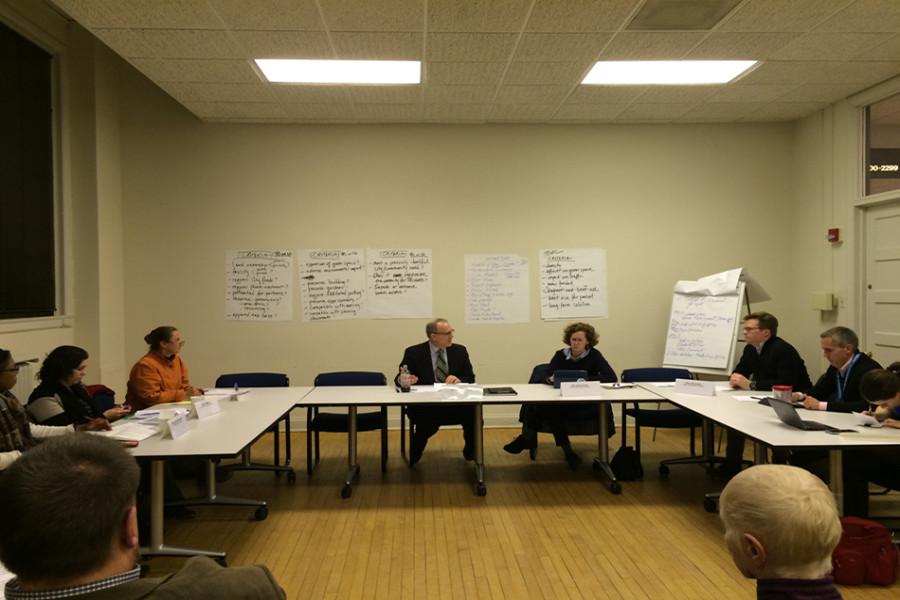Evanston plans to cut up to half of city committees in consolidation efforts
Daily file photo by Marissa Page
The Harley Clarke Citizens Committee, assembled last year to address the future of the Harley Clarke Mansion, is one of 46 city committees. Evanston officials are planning to downsize the number of committees in an effort to streamline decision-making.
January 15, 2016
City officials began the process of consolidating its 46 committees and commissions this month, hoping to cut the number of committees down by as much as half.
City Council’s Rules Committee discussed consolidation at their meeting Jan. 4 after hearing an annual report on the city’s boards, commissions and committees. City Manager Wally Bobkiewicz said the goal of consolidation is to make sure citizens volunteering are getting good use out of their time and able to actively participate in community processes.
“Some committees are just reading reports and not getting to recommend anything to Council, and that’s frustrating,” Bobkiewicz said. “We want committees that can be as action-oriented as possible.”
Bobkiewicz said the process of consolidation would center around finding overlap between different committees and combining them without removing any community voices. Cities of similar size, such as Madison, Wisconsin and Pasadena, California, often have about 20 committees, but often don’t have as much community engagement as Evanston, Bobkiewicz said.
“We have between 350 and 400 people serving on boards and commissions in Evanston,” he said. “A lot of committees means a lot of people get heard. But we have to make sure we aren’t wasting their time.”
Although the number of committees allow for more voices in government, it also makes it harder for people to work effectively, especially in areas of overlap between committees, said Oscar Murillo, an International City/County Management Association local government management fellow in Evanston.
“When you have so many commissions and boards it’s a little more difficult to get people to commit to doing things when others are trying to do the same actions,” he said.
Murillo also said the number of committees presented a transparency issue for Evanston. With so much work being done over the span of so many groups, what actions the boards are taking or recommending to the council can become inaccessible for the community.
Currently, Bobkiewicz and city officials are working on a report to present to the council on what the various committees do, and possible plans for which committees could be combined. After that, the process of implementation, which could take up to a year, would begin with recommendations from the council and the public.
Martha Logan, the city’s community engagement manager, said although she hasn’t heard much from community members about this process yet, getting feedback will be crucial in the process.
“The initial plan being worked on is just the first step,” Logan said. “After that, getting a community perspective is key, especially from residents that are very active.”
A plan for consolidation and implementation of Evanston committees will be presented in March, Bobkiewicz said. A more comprehensive look at what committees will be affected and how many will be outlined in the report at that meeting.
“We aren’t doing this to devalue work community does,” Bobkiewicz said. “It’s just to make the hard work as meaningful as possible.”
Email: [email protected]
Twitter: @robinlopsahl












